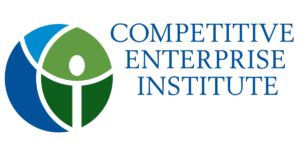In honor of Free Speech Week, end all regulatory gag orders
… Among the 40+ agencies with ALCs and 50+ adjudicating bodies in the federal government, the SEC and CFTC are the only two known entities that can gag its opponents. The SEC’s tendency to issue gag orders is so unpopular that even prominent billionaires like Elon Musk and Mark Cuban have denounced them as unfair violations of the First Amendment. A federal judge even called the CFTC’s gag order process “egregious.”
Margaret Little, Senior Litigator at the New Civil Liberties Alliance (NCLA), called the gag order “an occupational death sentence” for victims who are incapable of voicing their concerns about the unfairness of agency enforcement and adjudication.
The contrary argument that SEC veterans and skeptics have advanced is that, if you don’t want to lose your free speech rights, don’t settle with the agency. This argument belittles why most litigants choose to settle in the first place.
Agency adjudication is a high stakes game that most people are unable to pursue and are thus pressured into settling. It takes large sums of money, heartache, and time to pursue a losing battle against the SEC in-house. We’ve seen how unfair the SEC’s adjudication process is from the uphill struggles of Michelle Cochran, Ray Lucia, and most recently George Jarkesy, all of whom were only successful when they appealed their cases to a proper federal court and ultimately the Supreme Court.
Despite this, relief may finally be in sight. The NCLA is currently suing the SEC in the Ninth Circuit over its restrictive gag order process. This challenge comes after Cuban and Musk urged the Supreme Court to review and overturn the SEC’s gag policy during a recent lawsuit by a former Xerox executive.
One of the chief criticisms that Musk and Cuban advanced is that agencies like the SEC and CFTC are playing a double game of transparency. While SEC officials pass regulations to ensure public companies are transparent about their stock offerings to investors, they simultaneously are opaque in concealing their own legal disputes against private actors.
“Preventing these settling defendants from speaking freely deprives the securities markets of potentially material information and so may harm the very market participants for whose benefit the SEC pursues transparency and disclosure,” the NCLA argues in their brief…
October 23, 2024

Originally Published in Competitive Enterprise Institute
